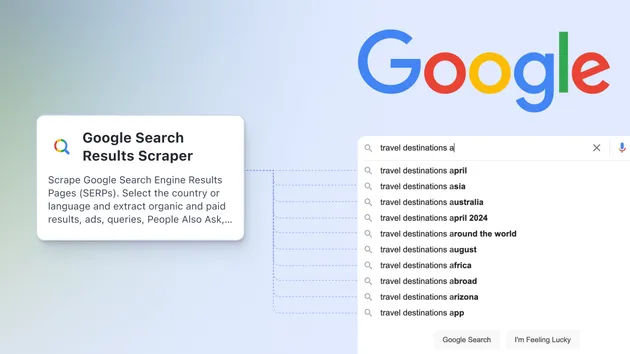Google People Also Ask Scraper
Pricing
$10.00/month + usage
Go to Apify Store Under maintenance
Under maintenance
Google People Also Ask Scraper
Scrapes questions that appear in the `People also ask` section on the Google search results page according to the keyword entered with the max depth you want





